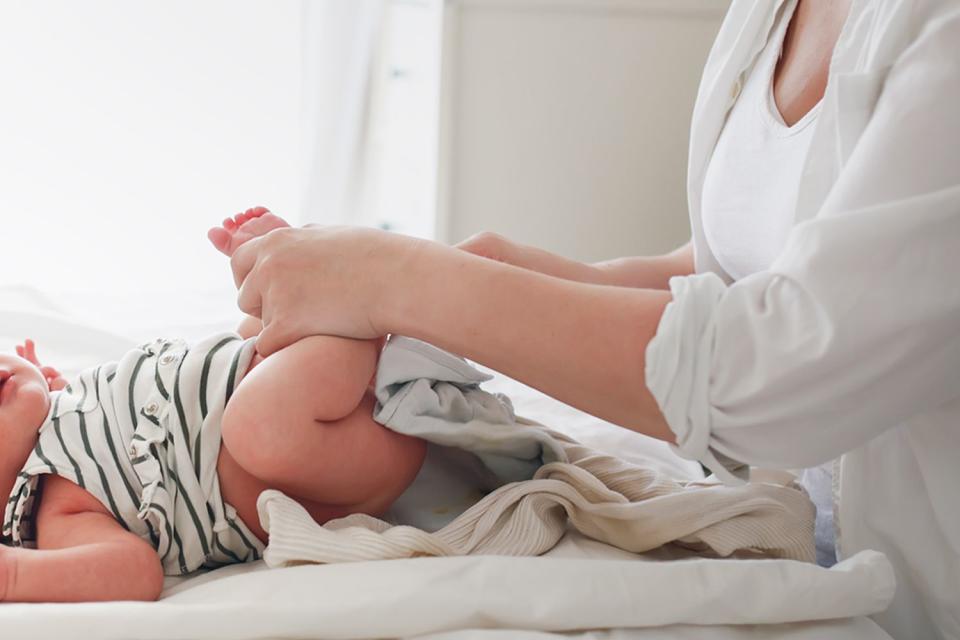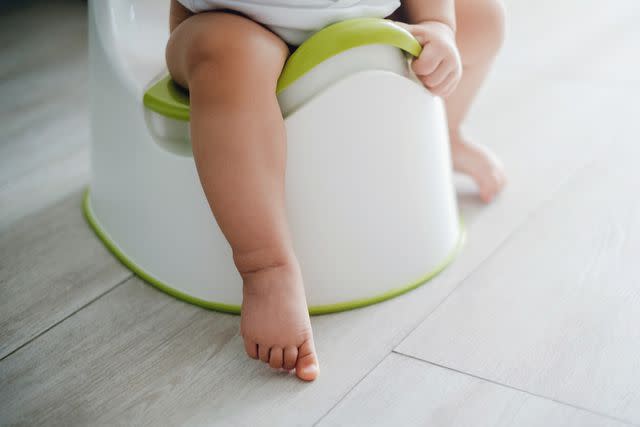Elimination Communication: Are Celebs Really Potty-Training Their Infants? Here's What to Know (Exclusive)
Understanding elimination communication is a key component of deciding if it is right for your family, says Dr. Jenelle Ferry

Getty
Mom changing baby's diaper (stock image)Celebrity moms are giving diapering a second thought.
From Rumer Willis to Bekah Martinez, celebrity moms have talked about trying elimination communication with their infants. The method is where parents recognize their baby's cues for their need to urinate or defecate and help them do so over a potty or toilet.
PEOPLE talked to Dr. Jenelle Ferry — board-certified neonatologist and director of feeding, nutrition and infant development at Pediatrix Medical Group in Tampa, Florida — about what parents should know about this method and how it works.
"Elimination communication essentially relies on reflexes to release bowel or bladder function when naked," Dr. Ferry explains. "This is different than potty training, where a child can recognize the signals of needing to use the bathroom and chooses the appropriate time to coordinate sphincter release."
Never miss a story — sign up for PEOPLE's free daily newsletter to stay up-to-date on the best of what PEOPLE has to offer, from juicy celebrity news to compelling human interest stories.

Getty
Mom changing baby's diaper as they play with a toy (stock image)Dr. Ferry notes parents who are considering elimination communication need to understand the goals of the practice in order to experience success.
"It’s important to realize that elimination communication for infants does not result in bowel and bladder control during infancy," she explains.
"Trying to achieve complete potty training too early may increase symptoms of dysfunctional voiding with incomplete or delayed bladder emptying. This can also lead to issues with constipation and incomplete bowel emptying."
With proper understanding, Dr. Ferry says the drawbacks to the practice reported have been minimal, "as long as you have developmentally appropriate expectations for your child."
As for how elimination communication impacts or relates to potty training, Dr. Ferry points out that data on the subject is "rather limited."
"There have been some studies that suggest that the introduction of elimination communication might result in earlier eventual potty training, and some suggest that there is a trend towards a decreased risk of urinary tract infections," she notes.
There's also a cultural component, with Dr. Ferry pointing out that "in some Asian countries, it is part of the cultural norm to begin elimination communication at 6-9 months."
"There have been some studies for countries like Vietnam that suggest the average age for full potty training trends closer to 2 years as opposed to 2-3 years in other western countries," she shares.

Getty
Infant sitting on a potty (stock image)While there are a few high-profile moms talking about elimination communication, they're not the first celebrity moms who have explored the method. Gisele Bündchen, Mayim Bialik, and Alicia Silverstone are just a few of the many moms out there who have given the practice a try.
Dr. Ferry believes the recent uptick in chatter around elimination communication may be because diapering and toilet training are among the parenting difficulties that are most common and stressful.
"Parenting is hard. Changing diapers is costly and time-consuming. Expectations for childhood greatness seem to just continue to increase, and parents are under a lot of pressure to keep up and prove to themselves and others that they’re doing a good job," she notes. "In some cases, there can also be pressure from schools or daycares wanting kids to be potty trained earlier."
Parents who want to support their child's success with potty training need to be patient, Dr. Ferry says.
"As with any developmental milestone, it’s important to support and encourage your child at the appropriate phase. Trying to achieve milestones based on expectations that are outside of their developmental capacity can sometimes lead to more difficulty," she explains.
"Reaching developmental milestones early doesn’t mean your child will be any smarter than if she’s teaching them towards the end of the normal range. If your child doesn’t poop on the potty until he’s 3 and continues to wet his bed for five years after that, he’s still perfectly normal!"
For more People news, make sure to sign up for our newsletter!
Read the original article on People.

